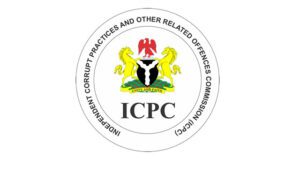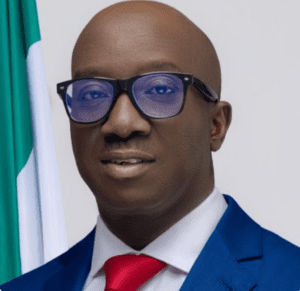
Insecurity: FG to establish resettlement city for IDPs in 4 states
…begins construction of 600 units of 2-bedroom flats for beneficiaries
By Deborah Christopher, Abuja
The federal government on Monday said it has begun arrangements aimed at resettling persons displaced from their ancestral homes in Borno, Kano, Katsina and Edo states.
The projects are combined efforts of the National Commission for Refugees, Migrants and Internally Displaced Persons (NCFRMI) and the Central Bank of Nigeria (CBN). It included building of 600 housing units of two-bedroom apartment with the necessary social amenities and vocational skills for the benefiaries.
The Federal Commissioner, NCFRMI, Senator Basheer Mohammed made this disclosure during a two-day workshop on capacity building for media agencies in migration reporting, organized by his organisation with the support of SWISS (SDC Project) at Keffi, Nassarawa State.
He explained that the programme will involve two projects which he mentioned as ‘Resettlement City and Project Reliance’.
Mohammed said, “The project is aimed at providing accommodation of two bedroom flats of 600 housing units, with modern amenities in place such as market, worship centres, police station, health facility and school, for the resettlement of internally displaced persons( IDPs) and returnees.”
According to him, the resettlement City for Borno State is nearing completion.
He said, “It is also news worthy to apprise this esteemed gathering that the Commission in collaboration with the Central Bank of Nigeria has come up with two projects, Resettlement City and Project Reliance, to bring succour and relief to our Persons of Concern (PoCs).
“The Resettlement City which has the four States of Katsina, Borno, Kano and Edo as pilot is aimed at providing accommodation of two bedroom flats of 600 Housing Unit, with modern amenities in place such as market, worship centres, police station, health facility and school, for the resettlement of our IDPs and Returnees
“The Resettlement City for Borno State is nearing completion. On the other hand, Project Reliance is meant to provide skill trainings for our IDPs and Returnees and on completion of the skill trainings, they will be provided with start-up capital and equipment to enable them start earning a living on their own”.
“The motives for migration are multiple and complex which according to Mr. W.L. Swing (former Director General, International Organization for Migration-IOM) includes but not limited to: Demography, demand, disparities, desperation, disaster.
“Migration is, therefore, inevitable in view of the driving forces in intercontinental and interdependent world
“Over the years, the story of migration has been largely positive with migration bringing new skills, energy, perspective and experiences to their new homes helping to drive economic growth and enriching the cultural tapestry of their communities.
“However, in recent time, migration issue is growing more momentous and dominating the global political discourse, with the negative narrative associated with it, bringing about fear and prejudices, which makes it toxic.
“Even with all its positive contributions, migration has been associated with some noticeable adverse effects. The undue pressure on local jobs, social security and services, as well as lifestyles and social fabric, has made it a sore throat on the host countries socio-economic well-being.
“This has led to untold challenges and vulnerabilities experienced by many migrants such as racism, xenophobic attack and discrimination that have led to maltreatment of migrants in their host and transit countries.
“As we all know, media represents a critical domain for management of migration. The analysis of media representation is critical to understand the responsibilities and consequences of cross border mobility, settlement and protection.
“Media helps in shaping public perceptions of migrants as well as ensuring that migrants have equal access to migration. Although a great deal of media coverage tends to be negative and criminalising migrants, by linking asylum seekers, refugees, and migrants with insecurity, socio-cultural and economic threats
UNHCR deputy representative, John Mckissick stated in his speech that
the organisation reaffirms its readiness to continue supporting the Government of Nigeria in ensuring better management of migration and mobility, with specific focus on the movement of asylum seekers, refugees and stateless persons.
He reiterated that irregular movements by migrants makes the men, women and children on the move easy targets for traffickers, who prey on the precariousness of their situation to exploit them.
He further disclosed that this is the reason UNHCR is Supporting stronger governance and closer observance of the universal character of human rights, including the rights of all people on the move, regardless of their legal status, in ways that reinforce the principles and practice of international refugee protection.



